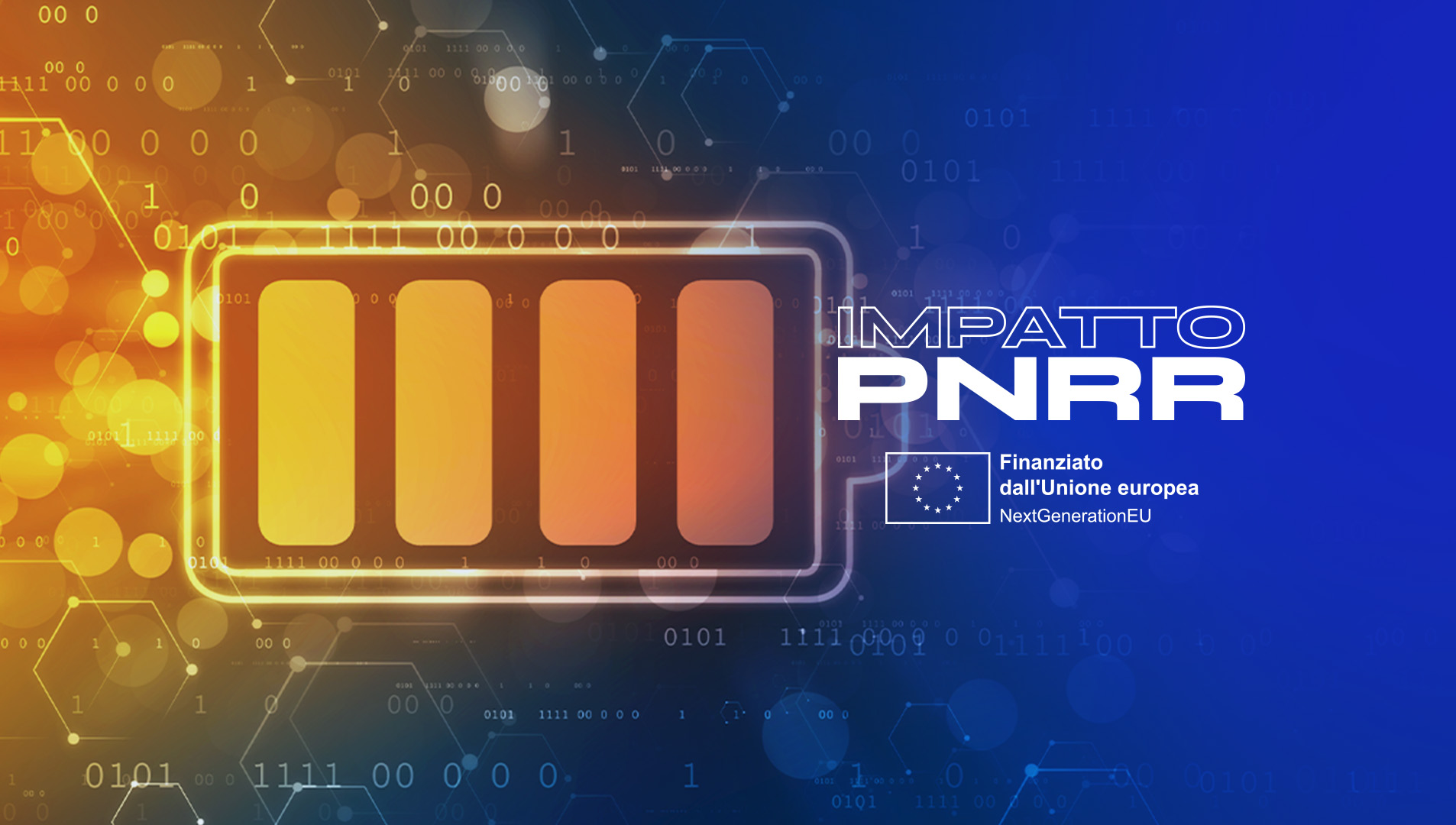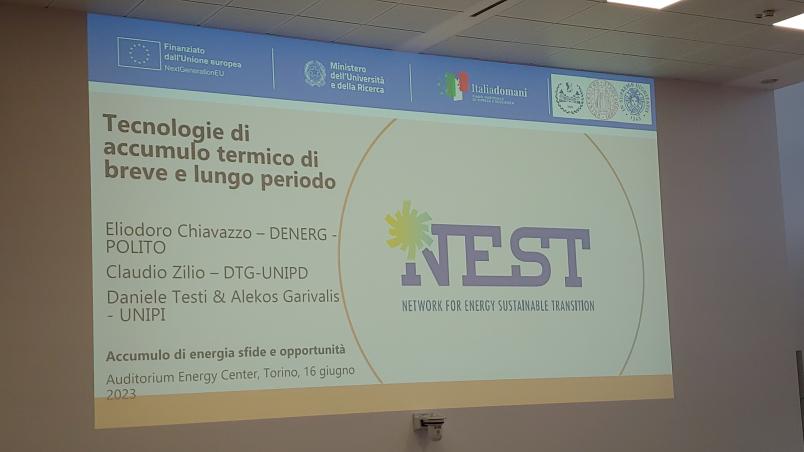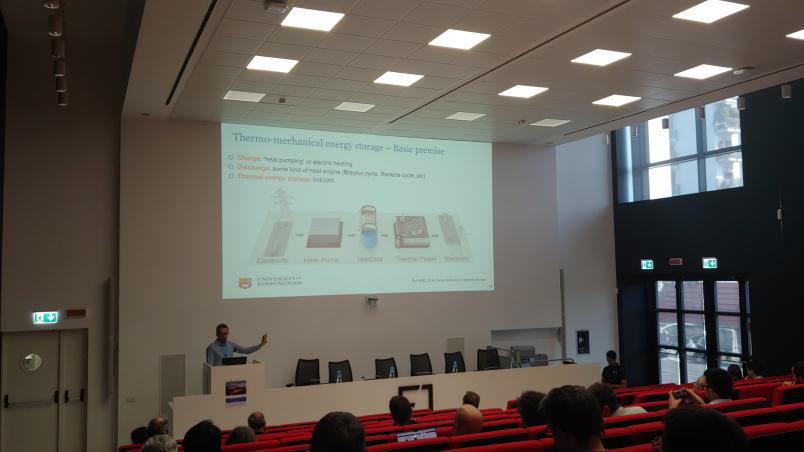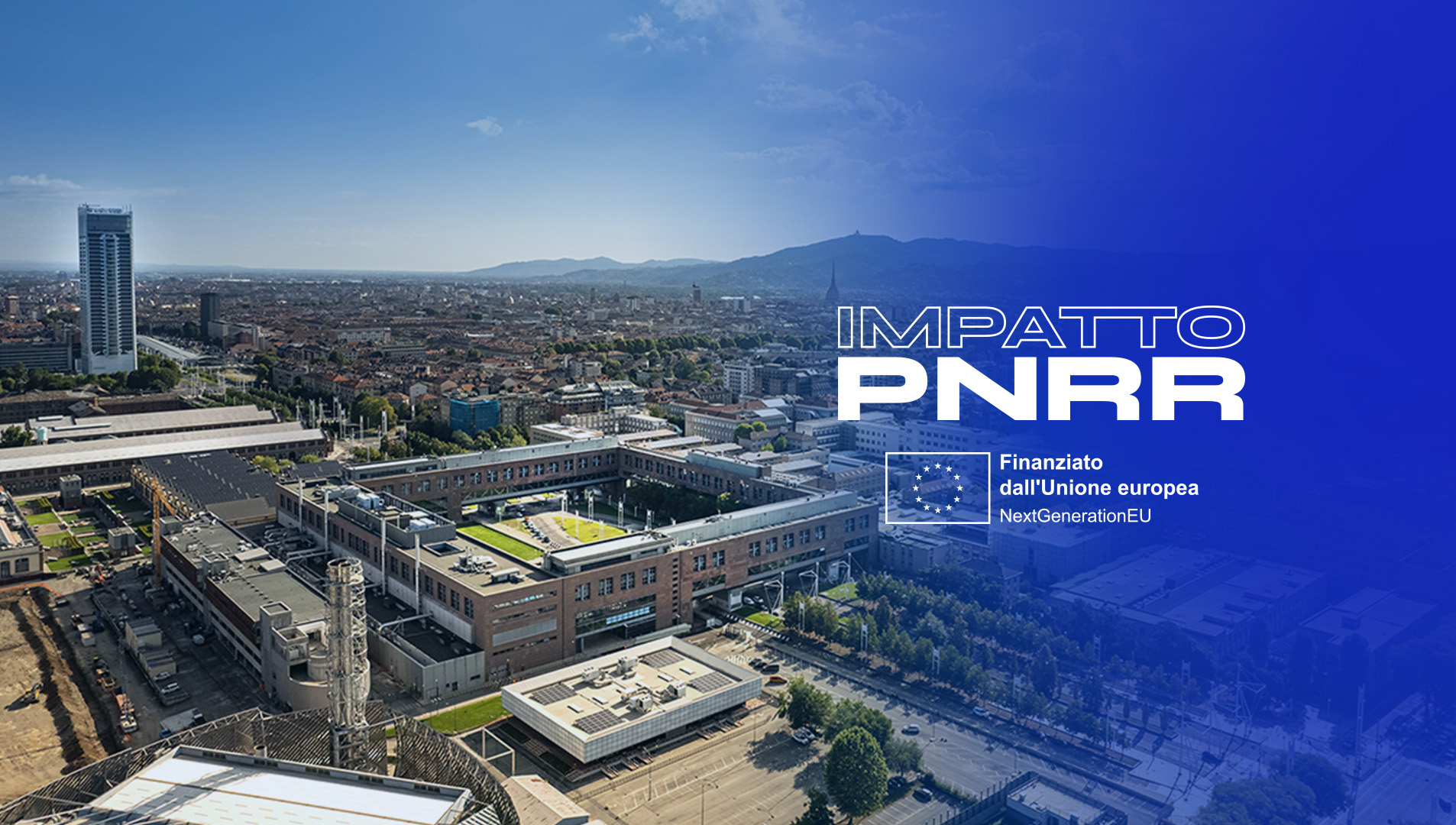
PNRR: challenges and opportunities for energy storage with the NEST project

The Politecnico coordinates Spoke 6 of the extended partnership NEST-Network 4 Energy Sustainable Transition, financed with PNRR resources and consisting of 11 universities, 5 research centres and 9 industrial partners, which aims to develop advanced technologies for a sustainable energy transition.
The partnership works on 9 themes, i.e., the Spokes: the one coordinated by the Politecnico is dedicated to Energy Storage, to obtain new technologies – both single components and systems – and solutions to address the specific issues related to different energy vectors: short- and long-term storage of thermal, mechanical (from renewable energy) and thermochemical energy, cutting-edge solutions for new generations of batteries, chemical storage based on innovative disruptive concepts such as reactive metals and photo-charged nanoparticles: an effective energy storage infrastructure is essential to achieve ambitious targets for the widespread diffusion of renewable energy sources and the decarbonisation of production processes.
In order to present the main research that will be developed during the project and the collaboration and funding opportunities for companies, in view of the forthcoming opening of the cascade calls, a specific event was organised on Friday 16 June in the Auditorium of the University’s Energy Centre.
The meeting, which was attended by over 100 people, introduced technological solutions and possible strategies for energy storage, which today represents one of the most important challenges to enable a significant penetration of renewable energy sources. The involvement of others from outside the partnership will be carried out through so-called cascade calls, which will be launched soon specifically with the aim of enabling an acceleration in the development of the most promising technological solutions, so that they can be made available to the market quickly.
The day dedicated to NEST opened with institutional greetings from Vice-Chancellor for Internal Policies Stefano Corgnati and an introduction by Professor Vittorio Verda, Spoke 6 coordinator, followed by a talk by Professor Adriano Sciacovelli from the University of Birmingham (UK), who illustrated the holistic approach of the Energy Storage centre of the British University, an international reference in thermal and thermo-mechanical storage.
Further presentations were made by a number of lecturers working at Spoke 6, who developed the various topics of the working group. Professors Eliodoro Chiavazzo (Politecnico di Torino) and Stefano Cerbelli (University of Rome “La Sapienza”) illustrated the research of the various universities on thermal storage, with particular emphasis on those using phase change materials and thermochemical storage, while Professor Verda presented research on the interfaces of heat storage with thermal networks. This talk was given jointly with Giulio Buffo of IREN, NEST's industrial partner. The morning session was closed by Professor Simone Venturini of the Politecnico, who presented perspectives on kinetic storage.

Further presentations were made by a number of lecturers working at Spoke 6, who developed the various topics of the working group. Professors Eliodoro Chiavazzo (Politecnico di Torino) and Stefano Cerbelli (University of Rome “La Sapienza”) illustrated the research of the various universities on thermal storage, with particular emphasis on those using phase change materials and thermochemical storage, while Professor Verda presented research on the interfaces of heat storage with thermal networks. This talk was given jointly with Giulio Buffo of IREN, NEST's industrial partner. The morning session was closed by Professor Simone Venturini of the Politecnico, who presented perspectives on kinetic storage.
In the afternoon, the focus shifted to chemical and electrochemical storage. Professors Catia Arbizzani (University of Bologna) and Carlotta Francia (Politecnico di Torino) and Professor Claudio Gerbaldi (Politecnico di Torino) presented work on various battery technologies, the area with the highest concentration of research linked to electrical energy storage. As for chemical storage, Professor Raffaele Marotta (University of Palermo) presented research on 100% renewable solutions for hydrogen storage. Subsequently, Professors Ciro Attaianese (University of Naples Federico II) and Fabio Ricco Galluzzo (University of Palermo) presented activities on interfacing storage systems with the electricity grid. The presentations were closed by Davide Robbe from the Intesa San Paolo Group, also a NEST partner, who presented the main business models related to energy storage for small renewable energy plants and large-scale plants. The day closed with a presentation by the Spoke coordinator of the current needs highlighted in the cascade calls for proposals on energy storage issues: the realisation of solutions for thermal energy storage suitable for interfacing with low-temperature thermal networks, the realisation of a battery cell with smart sensors for monitoring operating conditions, the realisation of advanced electrical converters for interfacing storage systems with the grid, and the prototyping of a chemical storage system based on reactive materials.
This meeting was the first of the launch events planned for each of the spokes and was held after the 2023 AIGE-IIETA international conference, also hosted at the Energy Centre, where technical and economic issues related to energy generation, distribution and utilisation, as well as policies to be implemented to foster the energy transition, were addressed.
“I think the day was particularly positive for several reasons. It was the first outing of the extended NEST partnership and it is very important that these initiatives are known to the Italian production system so that the technology can progress rapidly and also be known” explains Professor Vittorio Verda of the DENERG Department, coordinator of Spoke 6. “With reference to the topic of the Spoke6 working group, we have a tremendous need to develop innovative energy storage systems, overcoming the limitations of current technologies, in order to favour a rapid evolution towards an energy production mix that is based on renewable energy sources. Without an effective and diversified energy storage infrastructure, it will be impossible to achieve the ambitious targets for the renewable energy penetration that we hope for a sustainable future. Another important result we have achieved with this day event is related to the coordination effort that all spoke participants had to make to enable the integration of the various contributions; I believe that this way of working is essential to set up a collaborative effort between the partners and allows for a much higher quality result overall. The next important step will be to launch the cascade calls, which I am confident can start in Autumn”.
